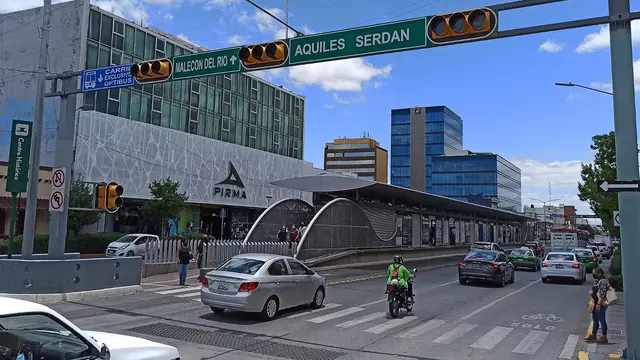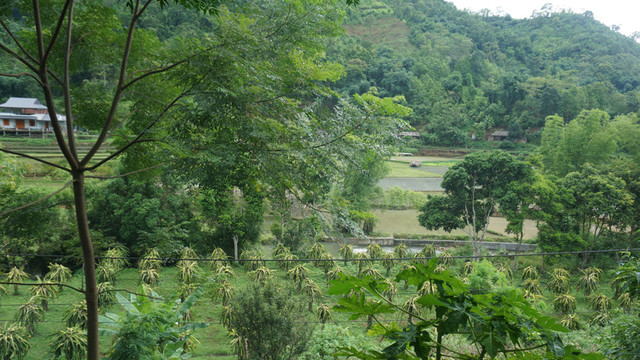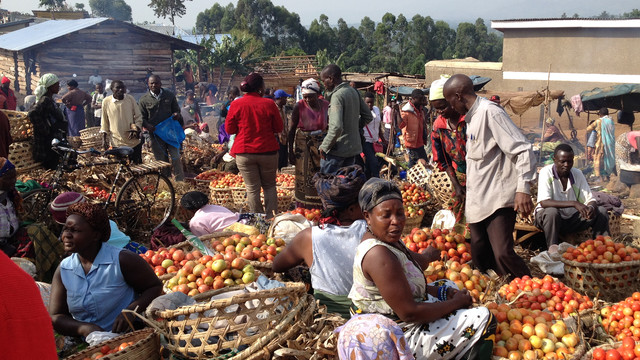Argentinian city Rosario wins award for urban sustainability
The World Resources Institute Ross Centre 'Prize for Cities' competition has awarded its grand prize to the municipality of Rosario, to recognise major progress in building climate resilience and equity through urban agriculture.

Urban vegetable garden in Rosario, Argentina (Photo: Pablo Flores via Flickr, CC BY-NC-ND 2.0)
IIED extends its congratulations to the municipality of Rosario (website in Spanish), Argentina, for winning the World Resources Institute (WRI)/Ross Center for Sustainable Cities’ Prize for Cities competition.
The award was created to celebrate outstanding examples of transformative urban change; it honours organisations and individuals with funding for projects that tackle climate change and urban inequality.
‘Resilient Rosario’
The winning project, 'Sustainable Food Production for a Resilient Rosario', converted unoccupied land for sustainable and healthy food production, and provided jobs and social benefits while also increasing resilience to extreme weather impacts such as flooding and heat.
The project’s impressive results saw Rosario selected from 262 applicants from 54 countries – representing entries from the private, public and non-profit sectors – to receive the grand prize of US$250,000.
A brief film about the project explains how the initiative was introduced in response to economic crisis, and has since evolved into a cornerstone of climate adaptation and social inclusion.
Rosario's urban agriculture programme is a model of how to integrate social, economic and environmental dimensions, showing what can be achieved when city-level actors take the lead. The programme has been running for 20 years, and it became a cornerstone of its inclusive climate action planning – Jorgelina Hardoy, researcher of IIED - América Latina
Developing together
IIED has a long history of innovative urban development. Working with partners in Latin American cities – including the municipality of Rosario – has been a strong part of this and is well documented.
You can read more about Rosario’s development work in our far-reaching journal Environment and Urbanization, which has published papers on the city three times since 2009. Its ‘sister journal’ – Medio Ambiente y Urbanización, published by our longstanding collaborator IIED-América Latina – featured the city (website in Spanish) as recently as last year.
A case study on Rosario’s low-carbon path to climate resilience written by local researchers was included in the book 'Cities on a Finite Planet: Towards transformative responses to climate change', edited by Sheridan Bartlett and IIED senior fellow David Satterthwaite.
Satterthwaite continues to champion Rosario, referencing the city in a paper prepared for 2018’s International Scientific Conference on Cities and Climate Change (co-authored by IIED-América Latina’s Jorgelina Hardoy and others), and using his platform at IIED to call for Rosario and other city governments to receive the funding and support they need to realise their visions of greener, fairer and safer cities.
Today: transforming Latin American cities
Our work with cities in the region is an ongoing dialogue. Since January, IIED has been working with partners including WRI and IIED-América Latina on a new project: 'Transforming cities, transforming lives'.
This work seeks to achieve shifts in urban development that will put cities on a path to achieving climate justice and zero carbon emissions by 2050. For our part, IIED and others will work closely with local partners IIED-América Latina in Argentina, and WRI offices in Brazil and Mexico to establish new models of coalition-building and governance through five 'urban labs'.
'Transforming cities, transforming lives' presents an opportunity for us to work with informal communities, local governments and city stakeholders to co-produce interventions with IIED-América Latina that lead to greener, more inclusive cities – Anna Walnycki, senior researcher in IIED's Human Settlements research group
Contact
Jorgelina Hardoy (jhardoy@iied-al.org.ar), researcher, IIED - América Latina


